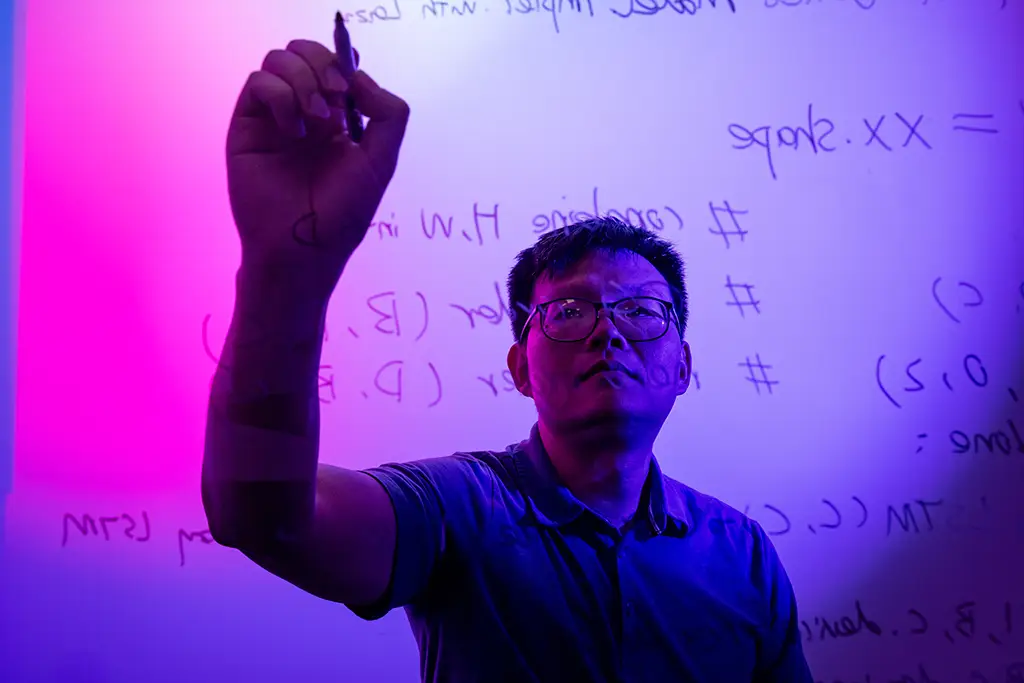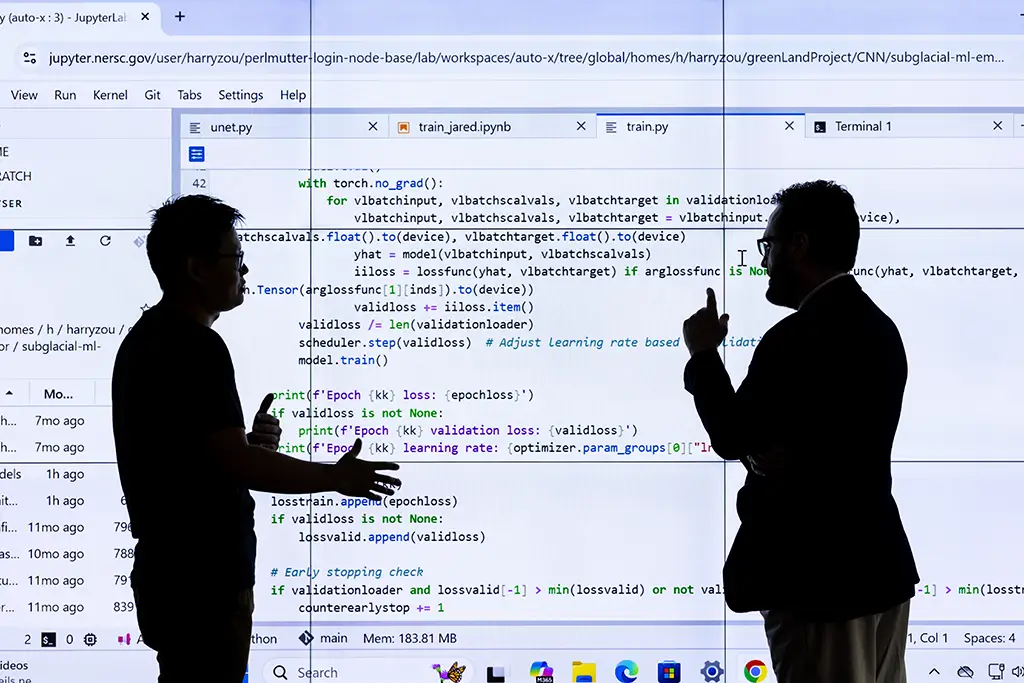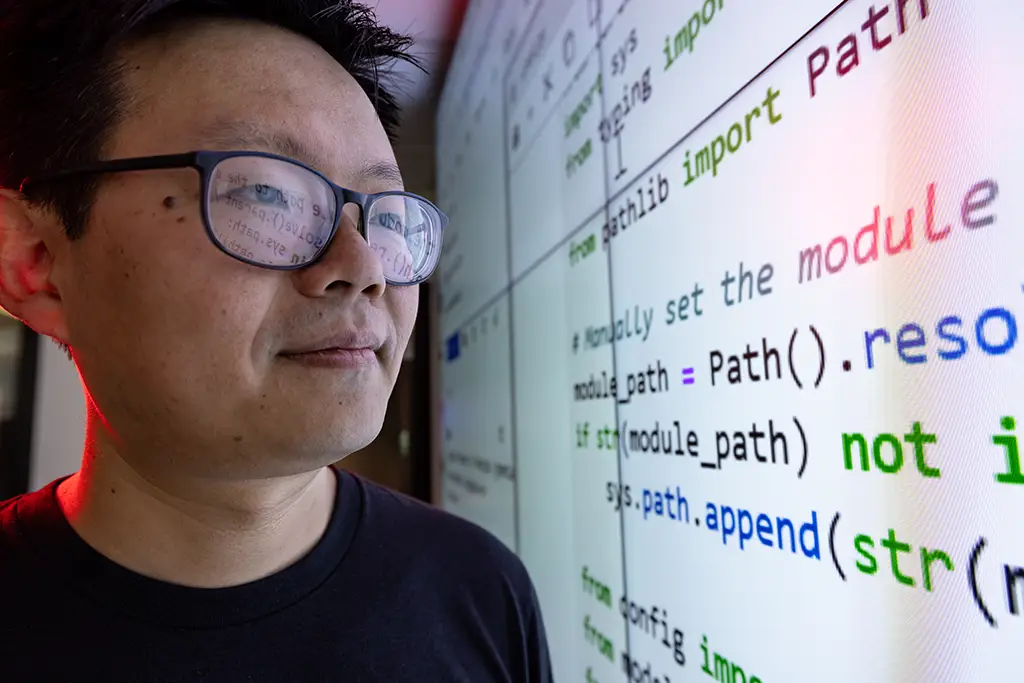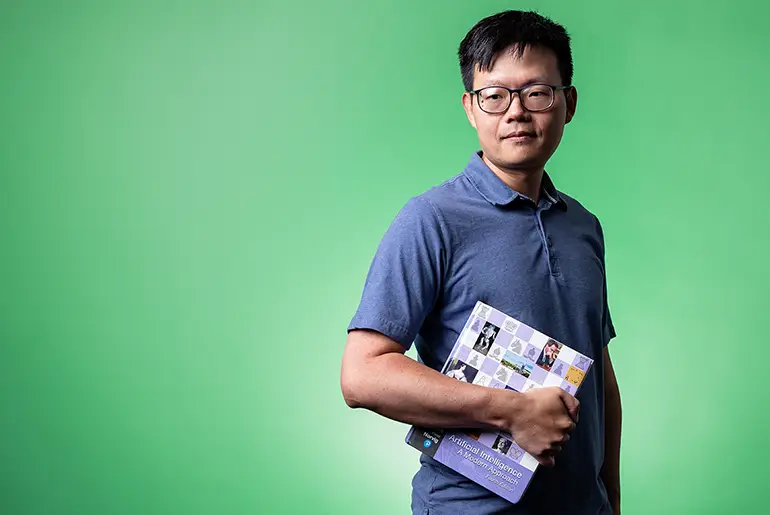Pursuit of Knowledge, Practice of Purpose
For Harry Zou, becoming a leader wasn’t a goal — it was a process. One that was developed through the discipline of the U.S. Military and evolved within the University of North Dakota.
Harry’s journey hasn’t been powered by perfect planning but instead by persistence, humanity and his unshakable sense of purpose.
Harry didn’t initially set out to study computer science. After completing his Bachelor of Business Administration in China in 2009, he came to the U.S. seeking new opportunities.
With encouragement from his parents — both working-class and without a college education — he initially leaned into business, hoping to leverage his strong English communication skills.
“They picked the cooperating program because I was pretty good at spoken English at the time,” he said. “They thought I could take advantage of that, which I’m very grateful for.”

Becoming a leader wasn’t a goal — it was a process. One that was developed through the discipline of the U.S. Military and evolved at UND.
After earning his MBA degree at the University of North Dakota, Harry made the decision to enlist in the U.S. Army. Serving as an Automated Logistics Specialist, Harry deepened his technical skills and forged a powerful leadership philosophy rooted in discipline and compassion.
“The military experience is tremendous for me. I can never forget about that,” he said. “You learn discipline, to show up, to be present mentally and physically. You understand accountability. And you realize that sometimes, leading people means helping them solve life problems, not just work problems.”
It’s not about being the smartest. Most people have the potential. They just need discipline and a chance.
As Harry helped his fellow soldiers navigate adult responsibilities, find apartments and make appointments, he discovered what it meant to lead with empathy.
“By the end of the day, we’re on the same team,” he said. “And that’s the biggest leadership lesson I learned.”
After completing his U.S. military service, Harry enrolled at the University of North Dakota with a renewed sense of direction. He wanted a solid foundation in data science and computer science — not just to learn how technology works, but to apply it in meaningful ways.
If I can do it, anyone can. That’s what being a leader in action is to me.
He dove headfirst into his coursework, quickly standing out for both his curiosity and drive. That drive led him to a research opportunity with faculty at UND and scientists from the Berkeley National Laboratory. Studying ice sheet melting, Harry was tasked with helping develop an AI-powered emulator to make environmental simulations faster and more efficient.
“We already had a physical model,” he said. “My job was to use machine learning to help predict changes with less computing time. It’s environmentally friendly and enhances scientific research.”

After earning his MBA degree at the University of North Dakota, Harry made the decision to enlist in the U.S. Army. Serving as an Automated Logistics Specialist.
He also collaborated with experts at TU Delft in the Netherlands. “Working with them is humbling,” he said. “It really expanded my view of how science is done, and how creativity and rest are just as important as deadlines and data.”
Harry’s leadership extends beyond research at UND. He served for four years on the Dean’s Engineering Council, helping plan events like Engineering Week to inspire future students. He’s also a dedicated volunteer at the North Dakota Science and Engineering Fair and an active member — and now president — of a campus Bible study group.
After experiencing a tragedy on campus, Harry turned to spiritual wellness as a source of strength. “It gives you purpose. It gives you hope,” he said. “People there gave me so much love and care, and now I want to pass that on.”
“It’s not about being the smartest. I don’t think I’m that smart,” he said. “But I show up. I do what I’m supposed to do, and then I branch out. Most people have the potential. They just need discipline and a chance.

When at UND, Harry had the opportunity to study ice sheet melting at Berkeley National Laboratory. He helped develop an AI-powered emulator to make environmental simulations faster and more efficient.
Harry doesn’t claim to have all the answers — and he wouldn’t want to. What he does have is confidence that comes from overcoming hardship, serving others and putting his full heart into everything he does.
“I just think I’m like everyone else,” he said. “But if I can do it, anyone can. That’s what being a leader in action is to me.”
